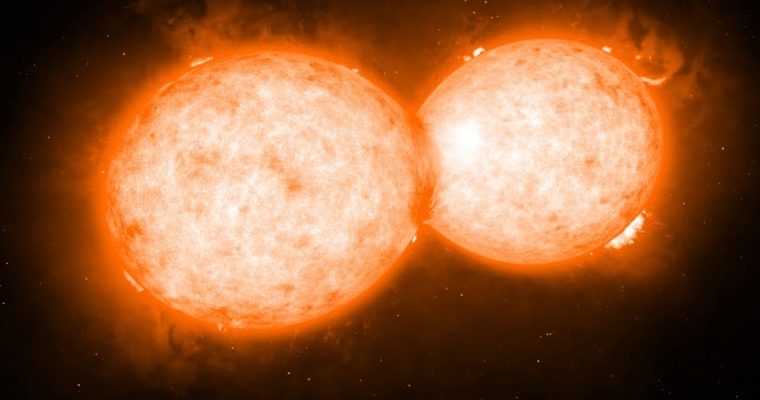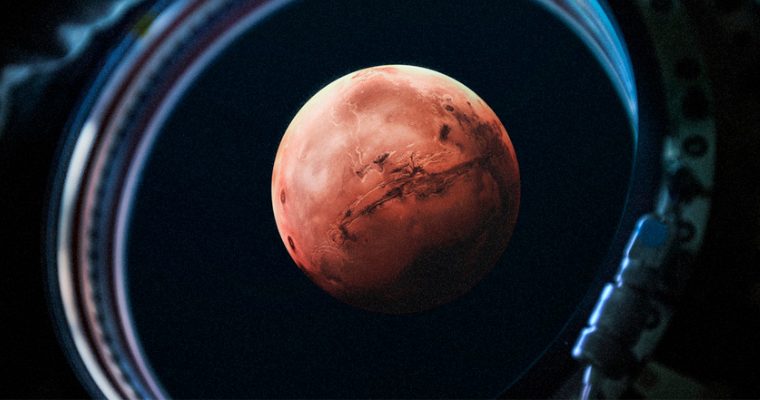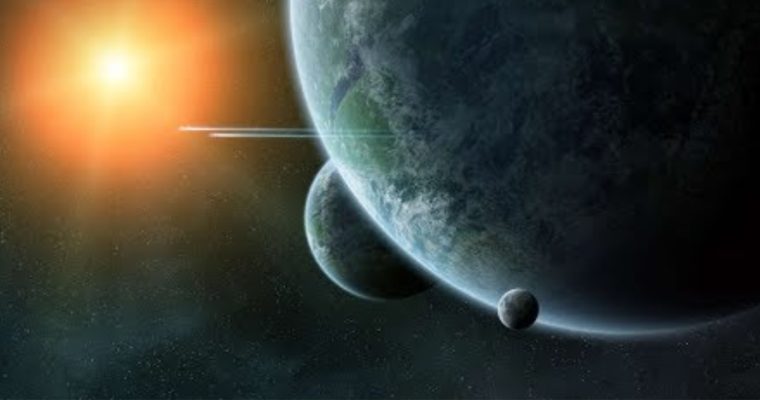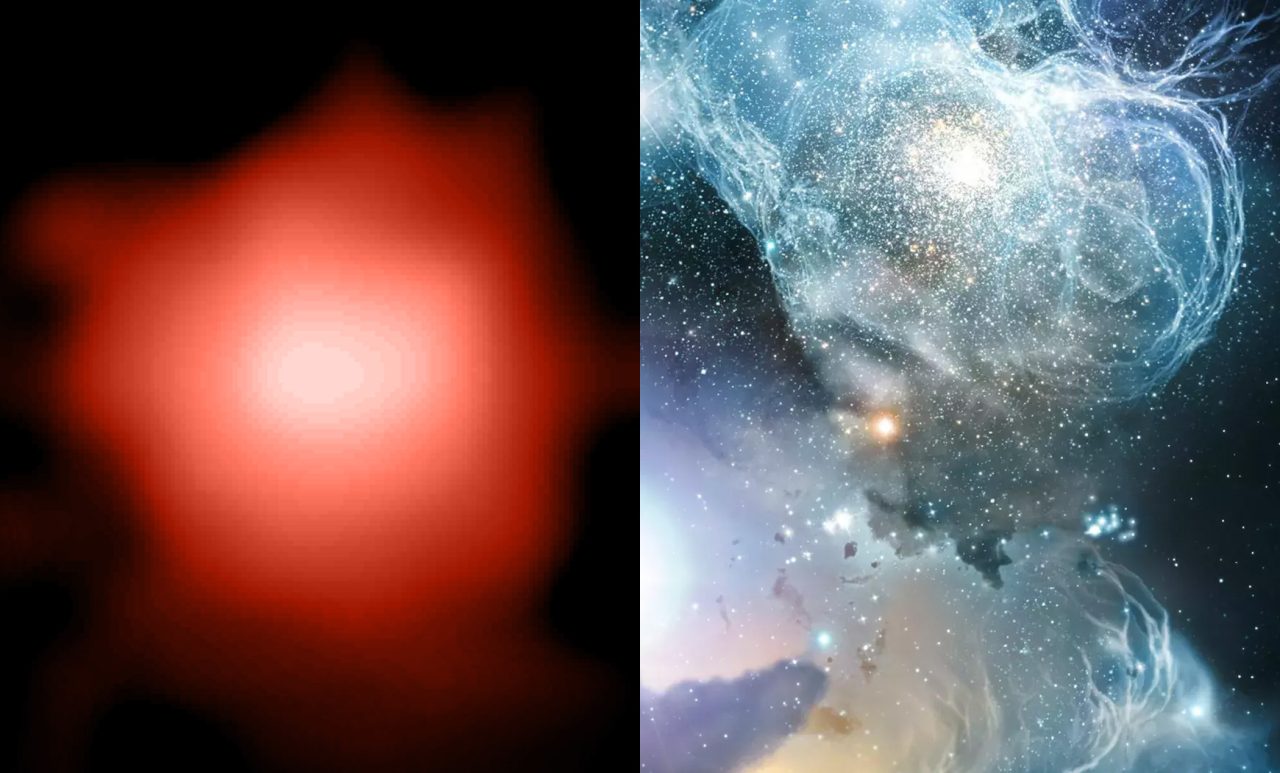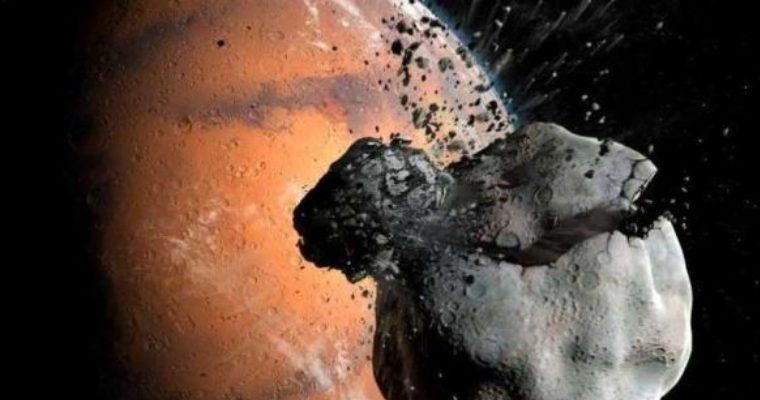Have you ever listened to the sound of a black hole? In case you were wondering — or in case you thought it was unsettlingly quiet — NASA has discovered that, yes, black holes do produce sound.
It’s worth a moment to listen because it’s strange, eerie, and it sounds like the perfect horror movie soundtrack, as if we’re at the end of 2001: A Space Odyssey.
According to CNET, NASA captured the soundwaves of a black hole more than 200 million light-years away from us. “The black hole is found in the center of what’s known as the Perseus galaxy cluster, which is a majestic 11 million-light-year-wide bundle of galaxies shrouded by hot gas,” the publication states.
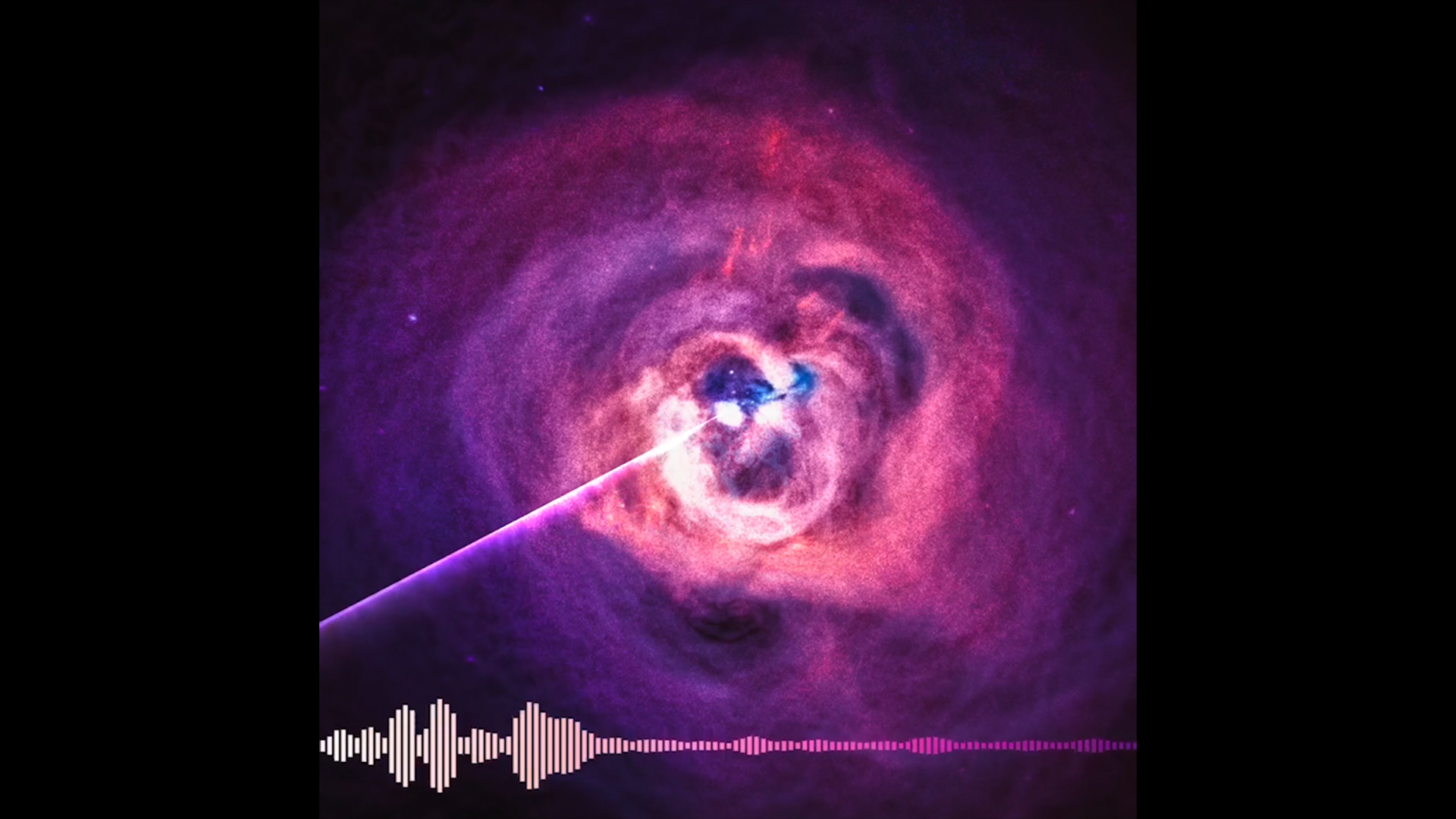
So, the Perseus galaxy cluster is a giant gas cloud, and that’s how scientists were able to capture the sound of the black hole. Waves have to vibrate through something to hear sound — but, since space is a vacuum, there’s nothing to vibrate off, so most believe there is no sound in space, per CNET.
But all that gas around the black hole made it possible to capture its unique sound. The black hole at Perseus can get beyond the space sound vacuum because it’s so close to all the gas. And that’s what the scientists were able to focus on — the hot gas ripples.

The misconception that there is no sound in space originates because most space is a ~vacuum, providing no way for sound waves to travel. A galaxy cluster has so much gas that we’ve picked up actual sound. Here it’s amplified, and mixed with other data, to hear a black hole! pic.twitter.com/RobcZs7F9e
— NASA Exoplanets (@NASAExoplanets) August 21, 2022
Now, our human ears can’t pick up on the sound ripples, but NASA’s equipment can. So the scientists scaled the sound in such a way that we could hear what a black hole sounds like.
“The [sound waves] are being heard 144 quadrillion and 288 quadrillion times higher than their original frequency,” NASA said.
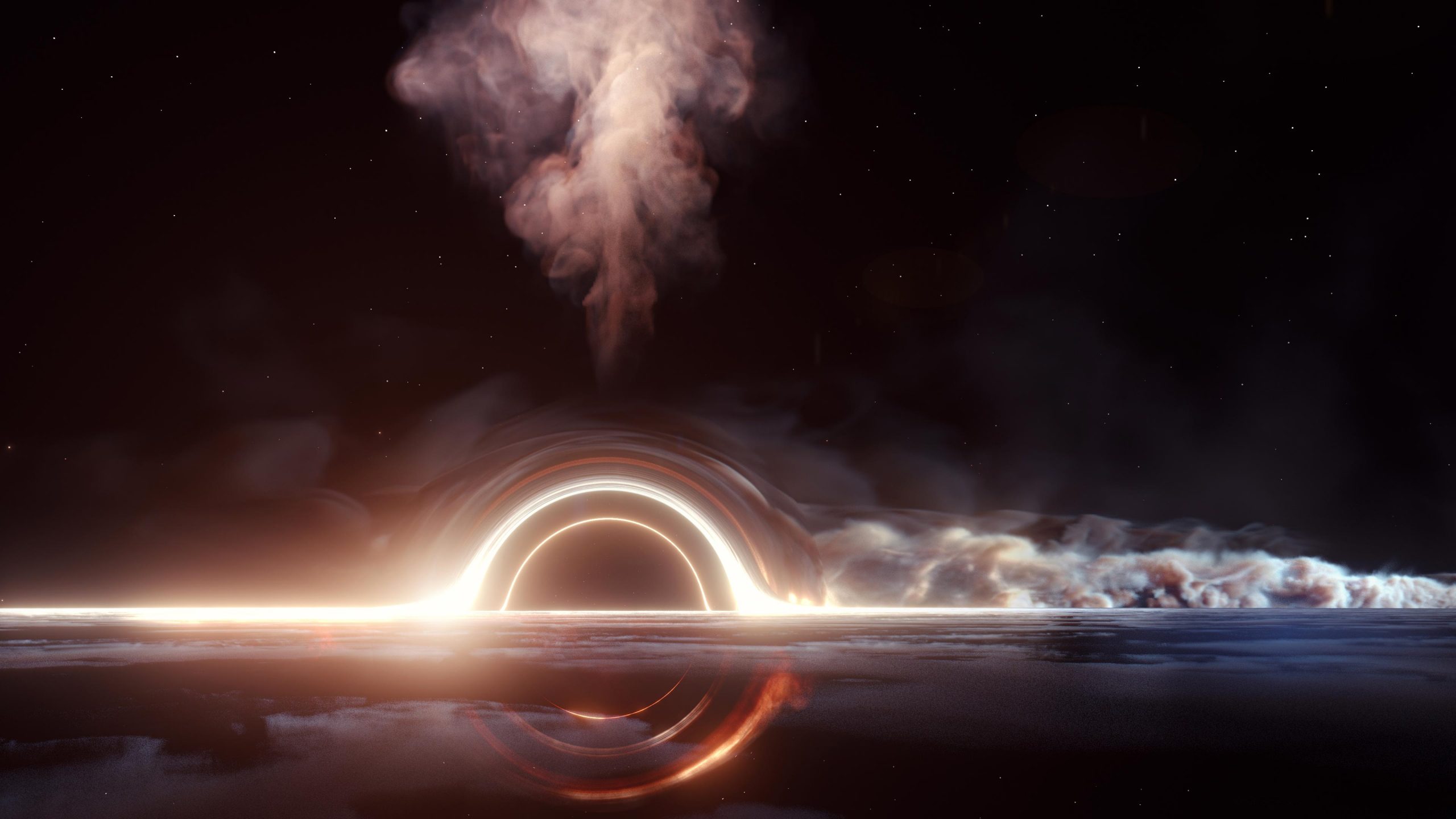
NASA tweeted the sound clip of what the black hole sounds like, scaled up for our little ears. And it’s a beautiful, haunting sound that seems very fitting for a thriller or horror movie.
Now, of course, it’s not possible to know if this is precisely what the black hole sounds like, since it’s so enhanced, but it’s still really, really cool.
Source: physics-astronomy.com



